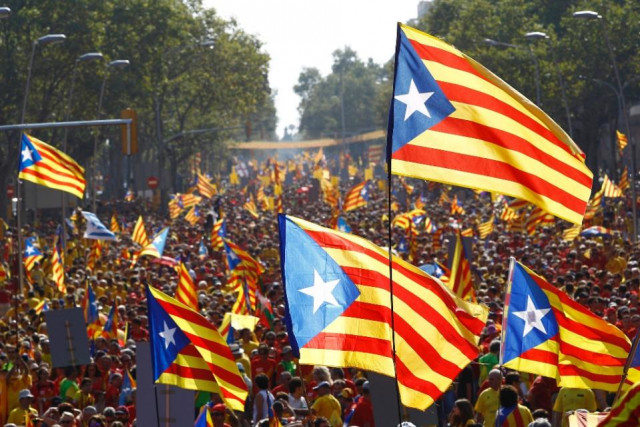Catalonia's cabinet picks are 'provocation' says Spain's ruling party
Pro-independence Catalan leaders claim they unfairly pay too much to Spanish government

PHOTO: AFP
The central government has been at loggerheads with Catalonia since the previous regional government set up an illegal popular vote on secession in October before a unilateral declaration of independence prompted Madrid to take control.
Pro-independence leaders in the wealthy region, which accounts for around a fifth of Spain’s total economic output, claim it unfairly pays too much into government coffers and have campaigned for the creation of a new republic.
Catalan lawmakers set to elect new hardline leader
After pro-independence parties won a slim majority in December’s election, and following a number of failed attempts to name a leader who was neither in jail nor abroad, Torra was sworn in on Monday.
Torra, a hard-line supporter of Catalan independence and close ally of former leader Carles Puigdemont who is in Berlin while a decision is made on his extradition, has called on the central government to end direct rule.
The inclusion of Jordi Turull and Josep Rull, both on remand for their part in the drive, and Antoni Comin and Lluis Puig i Gordi, in Brussels and also wanted by the Spanish police, is unlikely to loosen Madrid’s reins on the region.
Protests in Catalonia after independence leaders held
Spanish Prime Minister Mariano Rajoy has said that, once a full and legal government was running in Catalonia, he would return direct rule to Catalonia.
However, government spokesman Inigo Mendez de Vigo said on Friday that the inclusion of jailed politicians would be rejected by the courts which had already blocked attempts to name detained or absent nominees for the leadership position.
“The composition of the new (Catalan government) is a clear message that they want to continue with the problems, the conflict and provocation,” the ruling People Party’s (PP) candidate in Catalonia, Xavier Garcia Albiol, said on Twitter after Torra’s announcement.



















COMMENTS
Comments are moderated and generally will be posted if they are on-topic and not abusive.
For more information, please see our Comments FAQ